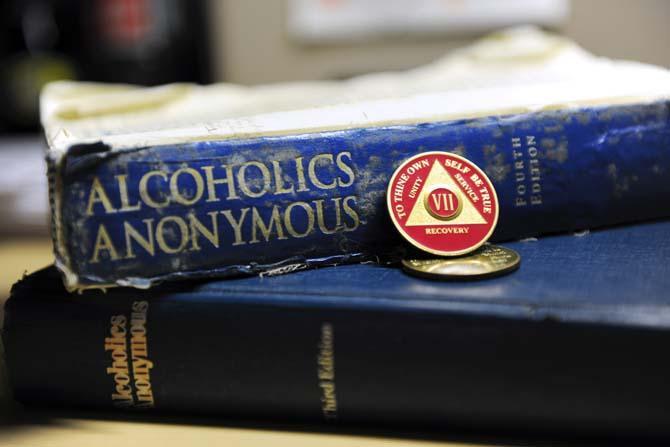As the number of students in alcoholic recovery increases, this semester the University has responded by allowing Alcoholics Anonymous meetings at 7 p.m. every Wednesday in the Student Union to help students build a network of support.
The meetings are hosted by the Louisiana Center Addressing Substance Use in Collegiate Communities and St. Christopher’s Addiction Wellness Center to allow students in recovery to find and support one another, said LaCASU Associate Director Bret Blackmon.
The goal is to make the University a more nurturing environment for recovering students, which can be difficult to do in a college setting, Blackmon said.
Providing services for recovering students allows them to pursue an education while still living a healthy life, Blackmon said.
The meetings are not only open to students in recovery, but also to family members, friends and anyone else interested.
In meetings, members are allowed to release built-up stress and emotions by their stories, said LaCASU Coordinator Allison Smith, adding that often just talking about what they have been through or about the problems they are currently facing is therapeutic.
Programs at the University have always encouraged students to make safe drinking choices, but the office realizes there is a need to improve services for the growing number of students in recovery, Smith said. LaCASU’s is a data-driven
department and knows alcohol and drug use is a common problem among college students.
In March, 13.2 percent of students at the University reported they thought they might have a drinking or drug problem compared to the national average of 9.3 percent, according to the Core Institute Alcohol and Drug Survey.
Students in recovery, whose last names were withheld for anonymity, agreed that AA meetings were a much-needed addition to campus.
There are many AA meetings available at local churches around the University, but this is the first one in the heart of campus, said physics and astronomy junior Jay D.
Psychology junior James S. said AA meetings help students in recovery from feeling isolated, because they let students share their
experiences and relate to others facing similar struggles.
It gives students a safe place to talk because nothing said in the meeting leaves the room, James said.
Even if students aren’t sure if they have a problem, coming to a meeting can help them figure out their situation, James said.
LaCASU is pursuing external funding and partnerships to help ensure the programs they provide and develop best fit the University’s community, Blackmon said.
Looking forward, the LaCASU’s office is working toward getting a sober living program using Texas Tech University as a model, Blackmon said.
A program like this would create a separate living community on campus for students in recovery.
Alcoholics Anonymous offers support to students
October 28, 2013








